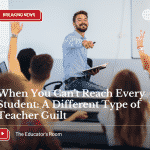When last year turned everything on its head and I felt like pretty much everything was out of my control, I turned to the Roman Stoics to help me differentiate what was within my control, and what was not. It’s no doubt it helped me to weather the COVID storm not just as a teacher, but as a father, husband, and community member.
However, for this school year, my goal is to do one better. My goal this year is not only to know what is under my purview — but to see it coming.
After reading the book Ninety Percent Mental, author and former Major League Baseball pitcher Bob Tewksbury provided many valuable lessons, but the most notable is that he elevated his game from professional to all-star by visualizing what was going to happen, and how he was going to react.
Tewksbury also elevated his impact after his career ended by earning his master’s in sports psychology and then working with a variety of players, mostly pitchers, as their mental coach. It sounds preposterous that a game of baseball would have such a position, but as Tewksbury notes in his book, “everyone has the chops to play the game, but those who are ultimately unsuccessful are such because they lose the game between their ears.”
Before you dismiss a book about baseball psychology as having no relationship to education, I want you to think back to the student who frustrated you most last year and ask yourself – “do I wish I were more prepared every day for dealing with this child?”
The trick is changing the teacher’s mindset. The problem that many of us teachers have in dealing with difficult students is we react to them. We let them set the tone and then we are put off by their actions. Teachers can take some of that power back without wresting it from their hands.
Simply anticipating what can and will occur, and visualizing how we will act on that, will change the day-to-day aura of our classrooms.
If this sounds ridiculous, think about how drivers improve with more time on the road. When they first appear behind the wheel at age 16, driving is nothing more than a nervous reaction. But a decade later, a driver’s skills have increased exponentially. Truly, the best drivers exhibit their skills in two ways: first, being able to not just see the road immediately in front of them, but to see their entire surroundings; and second, by anticipating how the driving conditions will change and altering behavior to them.
I don’t mean to minimalize this. Truly, dealing with a child who sadly scores high on the Adverse Childhood Experiences test is hardly like driving in snow.
But last year as I watched COVID cases increase, my colleagues and I made predictions as to what was to occur and prepared to adjust on the fly. As kids were forced to quarantine, I saw the road ahead to help them through some tough times. And when we finally returned for the final few months of the school year, I was equally unsurprised. Why? I kept my finger on the pulse of my classroom and each of the little heartbeats within it.
That hardly means I gift-wrapped a panacea to pedagogy for myself. I certainly had my fair share of struggles inside and outside the classroom, just as any of us endured had between March of 2019 and this summer. But as we return to our classrooms this year with so many things out of our control and so many variables that cause questions, I simply ask you to follow the three steps that Tewksbury encourages his pitchers in his training:
- Focus – Scan the classroom and see the students in it. Do things to keep the mind sharp, not just with curriculum but with general acuity. Read. Write. Play games. Be creative
- Listen – See what is happening in the school board minutes, or put an ear to what admin, colleagues, and/or parents are saying. Stay attuned to CDC guidelines. Differentiate between noise and sound.
- Visualize – As things change this year, anticipate reaction. Better yet, be ready for what is to come, and there is no reaction. The many avenues of what can happen will become routine when they do actually occur.
When pivot points occur again this school year and the world seems like it is out from under, we will be a bit more ready for them — with our eyes wide open.





